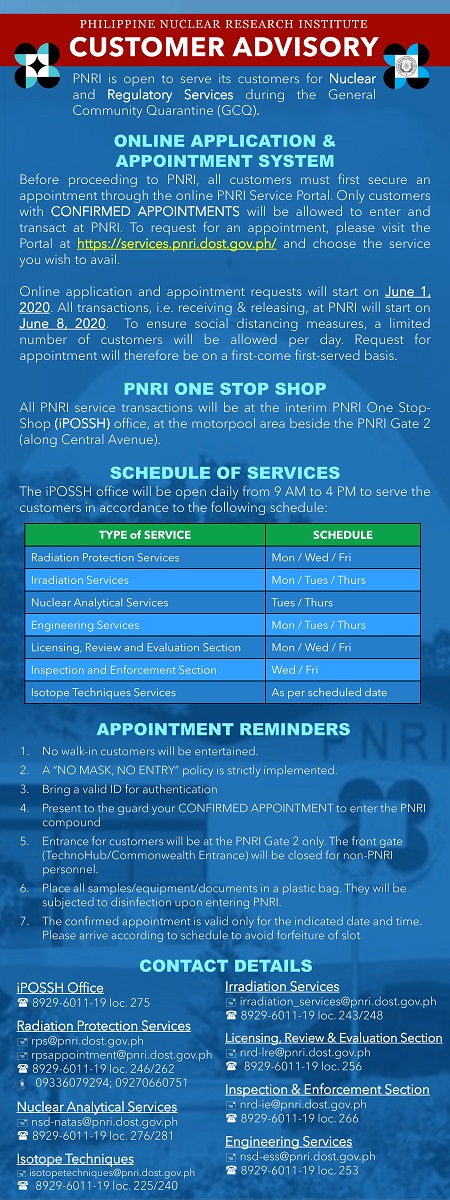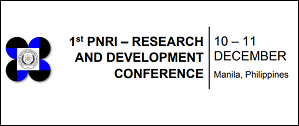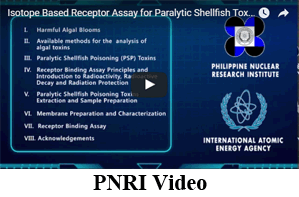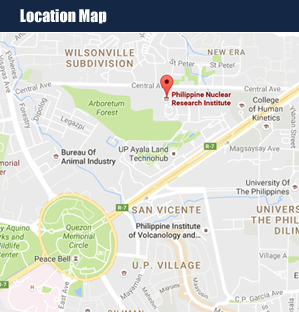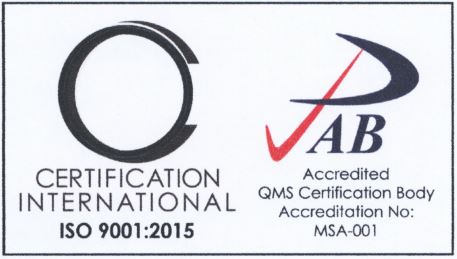Fukushima-Daiichi Nuclear Power Plant Accident in Japan INFORMATION BULLETIN No.18 (01 April 2011 Update as of 11:00 AM)
- Details
- The DOST-PNRI continues to closely monitor the situation at the Fukushima-Daiichi Nuclear Power Plant.
- The condition in the plant remains very serious but not worsening.
- The Comprehensive Nuclear Test Ban Treaty Organization (CTBTO) air monitoring station in the Philippines being serviced by the DOST-PNRI detected the following radioactivity concentrations:
|
Day |
Iodine-131 |
Cesium-134 |
Cesium-137 |
|
March 23 |
33 |
4.2 |
5.7 |
|
March 24 |
480 |
92 |
120 |
|
March 25 |
54 |
6.3 |
7.7 |
|
March 26 |
20 |
0.7 |
0.7 |
|
March 27 |
47 |
2.6 |
3.1 |
|
March 28 |
93 |
4.4 |
5.3 |
|
March 29 |
130 |
4.6 |
5.3 |
*microbecquerels per cubic meter; 1 microbecquerel = 1 x 10-6 becquerel
- The peak values on March 24 correspond to a dose of 131 nanosieverts in a year which is approximately 1/4000 of the dose from a single chest X-ray.
- Latest DOST-PNRI RADIATION LEVEL CHECK at PNRI grounds as of 9:00 AM, April 1, 2011: 85 to 140 nSv/hr (nanosieverts per hour), STATUS: NORMAL
- For the latest information, please access the following websites:
- International Atomic Energy Agency (IAEA) (http://www.iaea.org/newscenter/news/tsunamiupdate01.html)
- Nuclear and Industrial Safety Administration (NISA) of Japan (www.nisa.meti.go.jp/english/index.html)
- World Health Organization (http://www.who.int/hac/crises/jpn/en/index.html)
- For further advisories, please call the PNRI trunklines with Tel Nos. 929-6010 to 19 or visit the following:
- DOST (www.dost.gov.ph)
- PNRI (www.pnri.dost.gov.ph)
- STII (www.stii.dost.gov.ph)
Fukushima-Daiichi Nuclear Power Plant Accident in Japan INFORMATION BULLETIN No. 17 (31 March 2011Update as of 11:00 AM)
- Details
- The DOST-PNRI continues to closely monitor the situation at the Fukushima-Daiichi Nuclear Power Plant.
- The condition in the plant remains very serious but not worsening.
- The Comprehensive Nuclear Test Ban Treaty Organization (CTBTO) air monitoring station in the Philippines being serviced by the DOST-PNRI detected the following radioactivity concentrations:
|
Day |
Iodine-131 |
Cesium-134 |
Cesium-137 |
|
March 23 |
33 |
4.2 |
5.7 |
|
March 24 |
480 |
92 |
120 |
|
March 25 |
54 |
6.3 |
7.7 |
|
March 26 |
20 |
0.7 |
0.7 |
|
March 27 |
47 |
2.6 |
3.1 |
|
March 28 |
93 |
4.4 |
5.3 |
*microbecquerels per cubic meter; 1 microbecquerel = 1 x 10-6 becquerel
- The peak values on March 24 correspond to a dose of 131 nanosieverts in a year which is approximately 1/4000 of the dose from a single chest X-ray.
- Latest DOST-PNRI RADIATION LEVEL CHECK at PNRI grounds as of 9:00 AM, March 31, 2011: 86 to 131 nSv/hr (nanosieverts per hour), STATUS: NORMAL
- For the latest information, please access the following websites:
- International Atomic Energy Agency (IAEA) (http://www.iaea.org/newscenter/news/tsunamiupdate01.html)
- Nuclear and Industrial Safety Administration (NISA) of Japan (www.nisa.meti.go.jp/english/index.html)
- World Health Organization (http://www.who.int/hac/crises/jpn/en/index.html)
- For further advisories, please call the PNRI trunklines with Tel Nos. 929-6010 to 19 or visit the following:
- DOST (www.dost.gov.ph)
- PNRI (www.pnri.dost.gov.ph)
- STII (www.stii.dost.gov.ph)
Fukushima-Daiichi Nuclear Power Plant Accident in Japan INFORMATION BULLETIN No.15 (29 March 2011 Update as of 11:00 AM)
- Details
- The DOST-PNRI continues to closely monitor the situation at the Fukushima-Daiichi Nuclear Power Plant.
- The condition in the plant remains very serious but not worsening.
- The Comprehensive Nuclear Test Ban Treaty Organization (CTBTO) air monitoring station in the Philippines being serviced by the DOST-PNRI detected the following radioactivities:
|
Radioisotope |
March 23 |
March 24 |
March 25 |
March 26 |
|
Iodine-131 |
33 |
480 |
54 |
20 |
|
Cesium-134 |
4.2 |
92 |
6.3 |
0.7 |
|
Cesium-137 |
5.7 |
120 |
7.7 |
0.7 |
*microbecquerels per cubic meter
- The peak values on March 24 correspond to a dose rate of 0.015 nanosieverts per hour (nSv/hr) which is approximately 1/7000 of the dose rate due to natural radioactivity.
- Latest DOST-PNRI RADIATION LEVEL CHECK at PNRI grounds as of 1:00 PM, March 29, 2011: 94 to 118 nSv/hr (nanosieverts per hour), STATUS: NORMAL
- Based on the PAGASA model, air parcel coming from northern Japan is forecasted to move east towards the Pacific Ocean for the next three days.
- For the latest information, please access the following websites:
- International Atomic Energy Agency (IAEA) (http://www.iaea.org)
- Nuclear and Industrial Safety Administration (NISA) of Japan (www.nisa.meti.go.jp/english/index.html)
- World Health Organization (http://www.who.int/hac/crises/jpn/en/index.html)
- For further advisories, please call the PNRI trunklines with Tel Nos. 929-6010 to 19 or visit the following:
- DOST (www.dost.gov.ph)
- PNRI (www.pnri.dost.gov.ph)
- STII (www.stii.dost.gov.ph)
Fukushima-Daiichi Nuclear Power Plant Accident in Japan INFORMATION BULLETIN No.14 (28 March 2011 Update as of 10:00 AM)
- Details
- The DOST-PNRI continues to closely monitor the situation at the Fukushima-Daiichi Nuclear Power Plant.
- The condition in the plant remains very serious but not worsening.
- Extremely high levels of radiation (10 million times normal) appeared to be a reporting error and had been retracted by Tokyo Electric Power Company (TEPCO). Nevertheless, high levels of radiation remain inside the nuclear power plant but pose danger only to the emergency workers.
- Environmental radiation monitoring all over the world including the Philippines has detected very tiny amounts of radioactive isotopes which appeared to be coming from the Fukushima nuclear power plant and which pose no human health hazards.
- Latest DOST-PNRI RADIATION LEVEL CHECK at PNRI grounds as of 9:00 AM, March 28, 2011: 93-115 nSv/hr (nanoSieverts per hour), STATUS: NORMAL
- Based on the PAGASA model, air parcel coming from northern Japan is forecasted to move east towards the Pacific Ocean for the next three days.
- For the latest information, please access the following websites:
- International Atomic Energy Agency (IAEA) (http://www.iaea.org)
- Nuclear and Industrial Safety Administration (NISA) of Japan (www.nisa.meti.go.jp/english/index.html)
- World Health Organization (http://www.who.int/hac/crises/jpn/en/index.html)
- For further advisories, please call the PNRI trunklines with Tel Nos. 929-6010 to 19 or visit the following:
- DOST (www.dost.gov.ph)
- PNRI (www.pnri.dost.gov.ph)
- STII (www.stii.dost.gov.ph)















